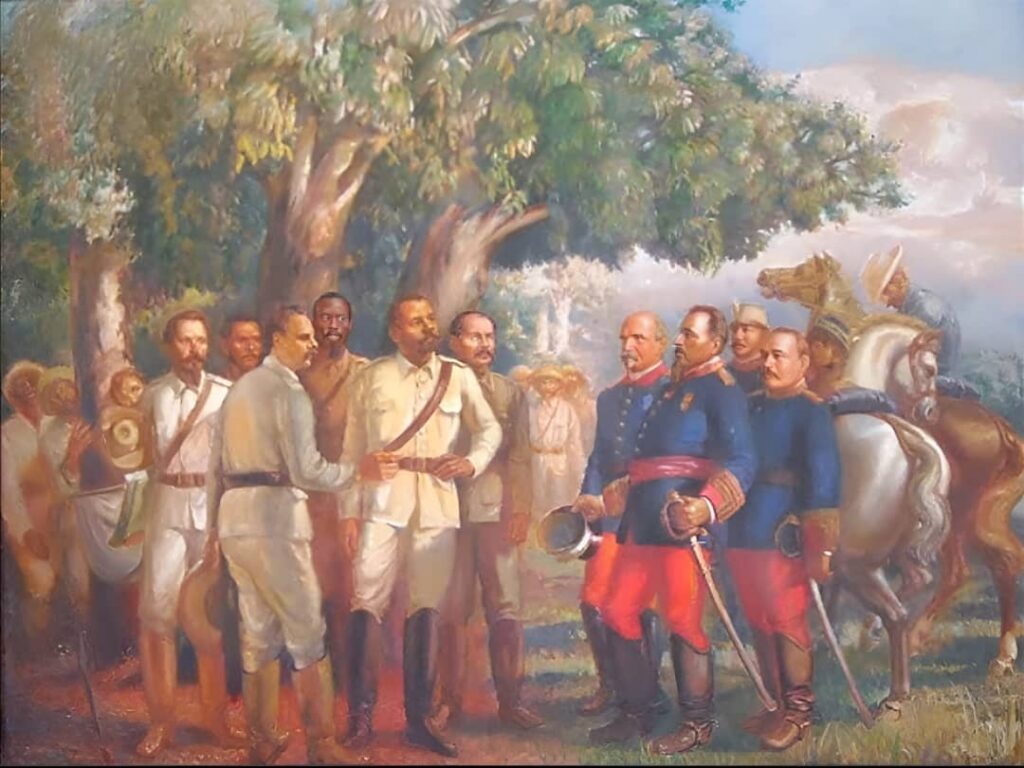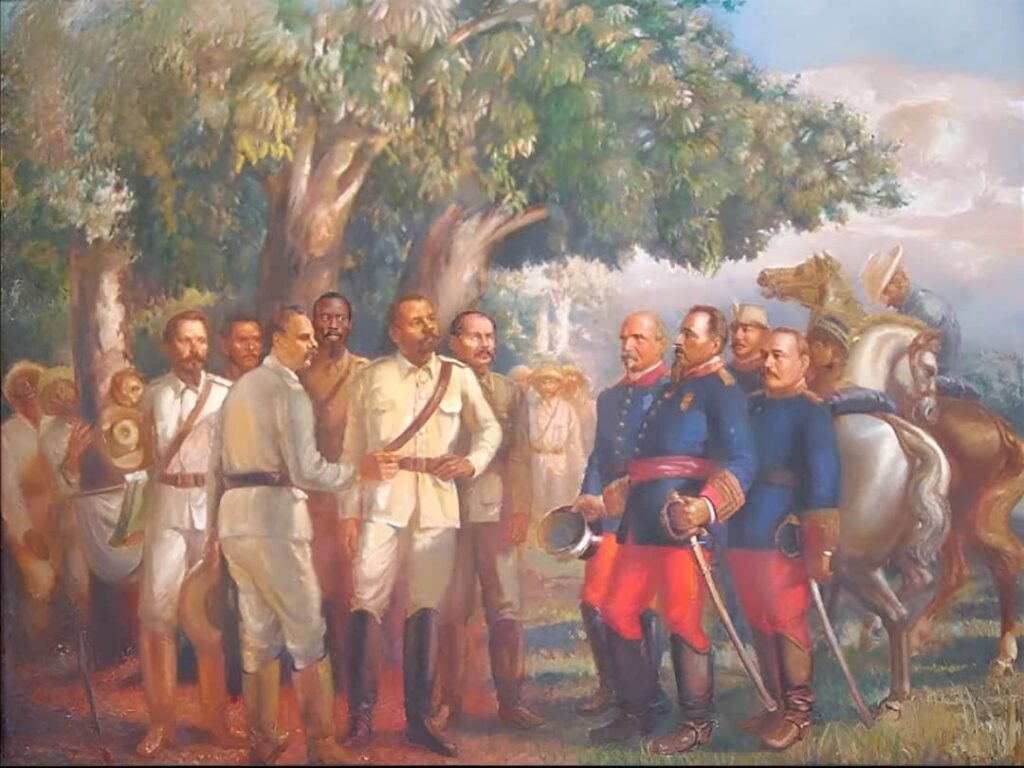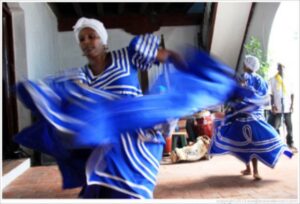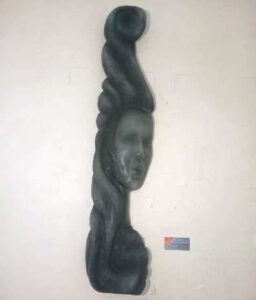The Baraguá Protest: Dignity at the surface .

Today, more than a century later, the legacy of Baraguá continues to inspire Cuban generations, reminding them that dignity and justice are inalienable values and that gesture of rebellion was immortalized as one of the most glorious pages of our history.

At the end of the 19th century, Cuba was immersed in a profound attrition after nine years of war for its emancipation.
The scarcity of resources, the lack of international support and the physical and moral exhaustion of the combatants made the fragility of the struggle evident. It was in this context that Arsenio Martínez Campos, a Spanish general with experience in conflict pacification, arrived on the island with the mission of restoring Spanish control over Cuban territory.
On February 10th, 1878, he consolidated his strategy through the Zanjón Pact. Through political maneuvers and taking advantage of the weakening of the insurgents, he managed to impose an agreement that offered some economic and social reforms, but denied the essential demands of independence and the abolition of slavery. For many, this ruse represented a betrayal of the emancipation cause and marked a critical point in the course of the conflict. However, the Mambi spirit was not crushed, because on March 15th, in Mangos de Baragua, Lieutenant General Antonio Maceo Grajales openly defied the Zanjon Pact.
In an act of historic courage, Maceo rejected the conditions imposed by Martínez Campos, ratified the Island’s libertarian commitment and demonstrated that national honor was not for sale. Surrounded by key figures such as Guillermo Moncada, Flor Crombet and his brother José Maceo, the Bronze Titan led a common front that united blacks, whites and mulattos beyond social divisions, confronted colonial oppression and exalted the patriotic ideals initiated in 1868 by Carlos Manuel de Céspedes.
The Baraguá Protest is remembered as an act of supreme intransigence and an eternal symbol of insurgency. Maceo and his followers demonstrated that the struggle was not only fought on the battlefield, but also in defense of the principles and values that defined the future of the Antillean nation.
Today, more than a century later, the legacy of Baraguá continues to inspire Cuban generations, reminding them that dignity and justice are inalienable values and that gesture of rebellion was immortalized as one of the most glorious pages of our history.
Writen by Yadiel Barbón




